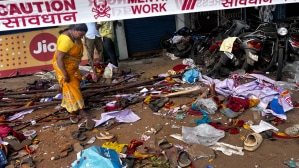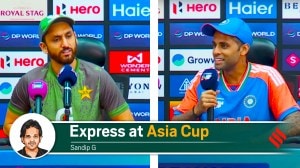’74 test had US worried over Pak reaction: Documents
The nuclear tests conducted by India in 1974 had the US considerably worried over 'containing' the immediate 'Pakistani reaction'.

The nuclear tests conducted by India in 1974 had the US considerably worried over “containing” the immediate “Pakistani reaction” even though it preferred a low-key response to the atomic explosion, official US documents have revealed.
Contrary to the scenario in 1998 when the Indian nuclear tests invited sanctions from Washington, there was a concerted effort on the part of Richard Nixon administration, led by Secretary of State Henry Kissinger, for a low-key response to India’s “peaceful” nuclear explosion, the newly-released documents said.
Kissinger, according to documents on American foreign policy in South Asia from 1969 to 1976, instructed the State Department not to issue a strong statement on the tests.
The official reaction as passed along by then Deputy Secretary of State Kenneth Rush, was to be “limited”, the documents revealed, adding any statement to be issued at that time was only to stress that American policy did not favour nuclear proliferation in general on account of its impact on world stability.
“The Nth power has finally come forward. The Indian test is a setback to non-proliferation; we had made it clear to the Indians that we opposed a test by them, even one labelled as in this instance a peaceful nuclear explosion,” Rush had said in a cable to American Overseas Missions including in Europe.
“The implications could be considerable, both with regard to South Asia and in the broad non-proliferation context,” he said.
“The challenge is no longer keeping India from going nuclear, it is stabilising a new nuclear ‘power’ within the international framework and trying to dissuade others from following suit,” Rush said.
“Now that the barrier has been broken by India this task will be more difficult. However, none of the other
near-nuclears — Japan, Israel, South Africa — are likely to be decisively influenced by the Indian action,” he said.
Rush identified “containing the Pakistani reaction” as “the most immediate problem”, saying, “The Indian test is bound to have an unsettling effect on the South Asia scene, most particularly on the Pakistanis.
“Whatever the Indians say, the Pakistanis will regard India’s going nuclear as posing a new threat to Pakistani security,” he said.
The nuclear tests by India “will intensify their (Pakistan’s) efforts to get a change in our arms policy; they could seek added security assurances from China and the US,” Rush said.
“They (Pakistan) could conceivably decide to launch their own (nuclear) crash programme although we estimate that their capabilities for doing this are extremely limited,” the former Deputy Secretary of State said.
The nuclear test by India, Rush said, came “at a particularly awkward time in the process under way to build a new Indo-US relationship when the Indians are turning to us for renewed economic and possibly foodgrain assistance and are assuming a visit to South Asia by the Secretary.”
The cable, which was sent to the US Ambassador in India, also touched on the immediate implications of the Indian test in 1974, including reactions in the Congress.
“Although the economic cost of the test is fairly minimal (we estimate USD 10-20 million) there will be sentiment in Congress that any new aid to India will be eaten up by nuclear development,” Rush’s cable noted.
“In real terms, the Indian test is irrelevant to the South Asian arms balance. India already has overwhelming superiority over Pakistan without a nuclear weapons capability. Even generous US supply of conventional weaponry to Pakistan would not affect this,” it said.
Nonetheless, the test was likely to enhance substantially Pakistan’s pressure for a revision of US arms policy, Rush’s cable said.
The top State Department official also criticised India’s move in the non-proliferation context saying “the Indian test comes at a bad time”.
“In 1975, there will be an international conference to review the NPT. By breaking the Nth-country barrier, India has made it difficult for us to argue the value of the NPT and has in particular made it easier for other potential nuclear powers to claim their ‘right’ to detonate underground ‘peaceful’ nuclear explosions”, the cable said.
“Finally, other potential nuclear powers will be watching closely to see how we react to the Indian test as a gauge of our real attitude towards proliferation,” Rush said.
“Specifically, if it becomes clear that US materials were used, they will want to see whether we continue to take seriously our peaceful uses agreements as precluding utilisation of US-supplied material or equipment for PNEs (peaceful nuclear explosions),” Rush added.






- 01
- 02
- 03
- 04
- 05

























